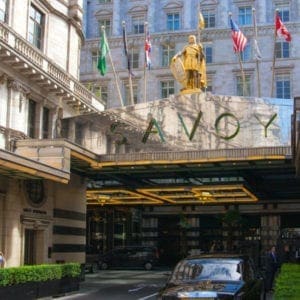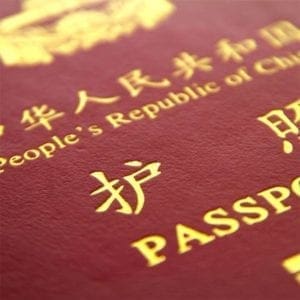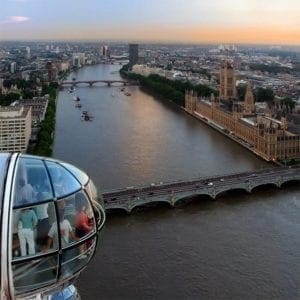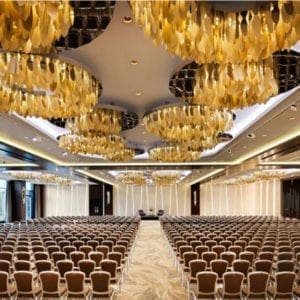 Shangri-La Hotels and Resorts has announced the integration of virtual reality (VR) experiences into worldwide hotel sales efforts. The group has rolled out Samsung Gear VR headsets across all Global Sales Offices and produced immersive 360-degree videos for over a quarter of its 94 hotels and resorts. Nearly half of the hotel portfolio will have VR videos available by January, with full roll out to be completed in 2016.
Shangri-La Hotels and Resorts has announced the integration of virtual reality (VR) experiences into worldwide hotel sales efforts. The group has rolled out Samsung Gear VR headsets across all Global Sales Offices and produced immersive 360-degree videos for over a quarter of its 94 hotels and resorts. Nearly half of the hotel portfolio will have VR videos available by January, with full roll out to be completed in 2016.
Powered by Oculus, the Gear VR headsets enable travel advisors, meeting planners and potential corporate clients to virtually experience Shangri-La hotels and destinations around the world. They will be used as promotional and educational tools at tradeshows, industry events and sales meetings, instantly “transporting” advisors to places such as the rooftop of Jokhang Temple in Lhasa or the Grand Ballroom in Kowloon Shangri-La, Hong Kong. Travel advisors will also be able to share the 360-degree videos with their customers via www.shangri-la.com/VR. The videos can be watched online on a 360-degree video player or, for a fully immersive experience, freely downloaded and viewed on a VR headset that uses the Oculus platform.
“Shangri-La is investing significantly in technology and the future of travel content, which is why we are embracing virtual reality on this scale,” said Steven Taylor, chief marketing officer of Shangri-La International Hotel Management Ltd. “VR is a revolutionary new sales tool. The technology has evolved so that it is now affordable, light and portable; virtual reality is on the cusp of becoming more mainstream.”
Viewing the 360-degree videos is a completely immersive experience that feels live and dynamic. Watching the Hylandia by Shangri-La video, viewers find themselves a passenger in a car driving through the breathtaking countryside outside of Shangri-La City, China. They can absorb the array of sights and sounds while standing at the edge of Genghis Khan Square in Ulaanbaatar; tour the presidential suite of Shangri-La Hotel, Tokyo; or experience the best view of Beijing from a guestroom in China World Summit Wing, the tallest building in the city.
“Travel experts play a critical role in their fields and the traveller’s decision-making process. This is why our first VR efforts are focused on them,” said Taylor. “Their clients depend on them to ensure holidays, business trips and meetings are enjoyable and effective. Shangri-La’s VR experiences will enhance their knowledge about our hotels and their ability to sell with confidence to their clients.”
Shangri-La began developing virtual reality videos in May with Brand Karma and previewed ones of Shangri-La hotels and excursions in Ulaanbaatar, Lhasa and Shangri-La City at ILTM in Shanghai this past June. Video production was accelerated given the positive feedback in order to roll the headsets out to the group’s 17 Global Sales Offices.
“We want to employ innovative technology in a way that is meaningful to our trade partners and beneficial to consumers,” said Taylor. “Not only will Shangri-La’s immersive 360-degree videos provide travel experts a better understanding of the Shangri-La product and experience, but there are many creative applications. For example, a travel planner could virtually walk a CEO through Island Shangri-La, Hong Kong’s ballroom prior to a big product announcement or use it to heighten clients’ anticipation for an upcoming trip.”














